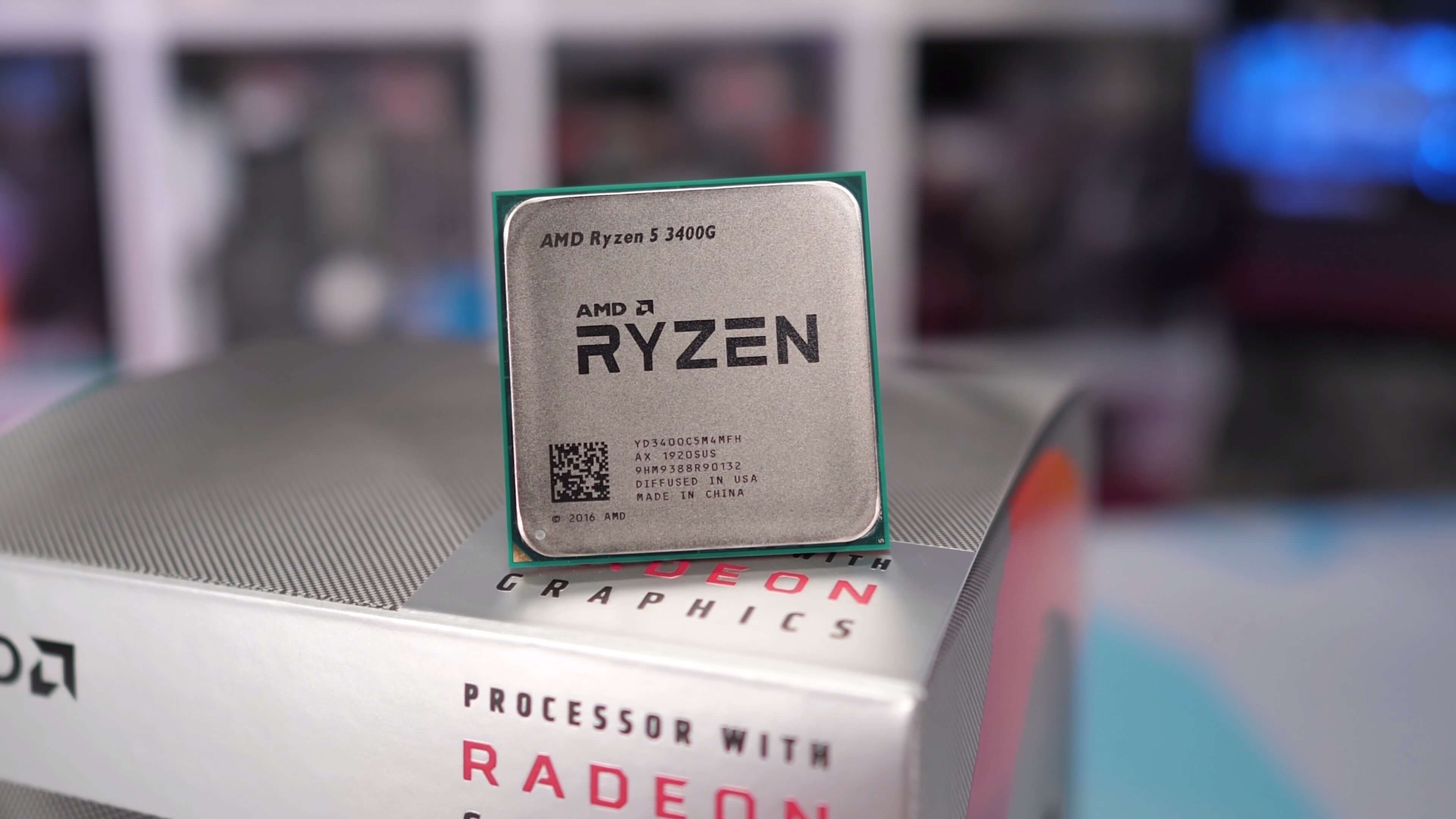[SOLVED] Seriously, What is the difference between Ryzen 3 3200g and 2200g
- Thread starter Spirals
- Start date
You are using an out of date browser. It may not display this or other websites correctly.
You should upgrade or use an alternative browser.
You should upgrade or use an alternative browser.
Solution
Reason for APU: Grandma needs a basic pc, that's very cheap, doesn't require any OC or anything else other than yearly cleaning, just so she can watch her kitten vids, cooking vids, knitting vids on YouTube. Being Grandma, there's also a need for Candy-Crush, Solitaire, maybe some poker. So $500 for Intel with an igpu is out, $200 for Amd apu is in, and the gamers can be happy with a full cpu and no useless igpu taking up space under the IHS.
Intel is again pricing itself out of parts of the market and the cheapest 9th gen doesn't even have igpu.
Real reason for APU's is for ppl on a budget that's dictated by the amount of loose change under the car seats.
Reason for the Vega graphics vrs what is more usual for an igpu? Because AMD...
Intel is again pricing itself out of parts of the market and the cheapest 9th gen doesn't even have igpu.
Real reason for APU's is for ppl on a budget that's dictated by the amount of loose change under the car seats.
Reason for the Vega graphics vrs what is more usual for an igpu? Because AMD...
drea.drechsler
Polypheme
For an APU? Arguably, it is.FPS isn't the be-all and end-all of performance.
Better to look-up the specifications and performance data for each processor and compare them for yourself.
If the iGPU of even the 2400G was the bottle neck then adding a better CPU to the mix won't change things much as 3200G and 3400G has the same iGPU, so same bottle necks.
APU's are targeted at entry-level gaming, cheap and creating an easy upgrade path to better things but still yet highly useable. So if all you're buying it for is an entry-level gaming machine using the iGPU you're probably as well off with the Zen(1st gen) route (2200/2400). For so long as they are available and cheaper, at least.
The exception to that is of course should you be planning to pair it with a 'better' GPU... then that's when the Zen+ CPU's would be a better choice. Although only a little bit, most likely. In fact, if they're still around, and cheap as they now are, really try hard to see if a 2600/X chip can be fit in the budget. Even if with an older GPU until you can get the planned upgrade.
So really it seems to be kind of a niche product.
Last edited:
Except it isn't quite exactly the same: the 3rd-gen IGPs are running 150MHz faster while the die itself also has a slightly better memory controller which officially supports faster memory and provides reduced total latency. Depending on how the IGP is being stressed, the 3000-series IGPs are between 10% and 30% faster than their 2000-series variant.If the iGPU of even the 2400G was the bottle neck then adding a better CPU to the mix won't change things much as 3200G and 3400G has the same iGPU, so same bottle necks.
drea.drechsler
Polypheme
Does that 150Mhz gobble up the OC headroom (what little there is) 2200/2400 chips had?Except it isn't quite exactly the same: the 3rd-gen IGPs are running 150MHz faster while the die itself also has a slightly better memory controller which officially supports faster memory and provides reduced total latency. Depending on how the IGP is being stressed, the 3000-series IGPs are between 10% and 30% faster than their 2000-series variant.
And what do you mean depending on how it's stressed? That a 3200/3400 iGPU can be oc'd still but you have to be willing to put a lot of voltage to it? and deal with the heat meaning big cooling and etc.
I mean how the workload is exercising the behavior of the memory controller, memory chips, fabric bandwidth, communication between shaders, memory bandwidth sharing with the CPU cores, etc. In workloads that simultaneously benefit from all 3000-series APU improvements, you may see up to 30% better IGP performance. In workloads that mostly benefit from a single aspect, such as the improved memory controller or 150MHz IGP bump, then you may be down to 10%.And what do you mean depending on how it's stressed?
drea.drechsler
Polypheme
I mean how the workload is exercising the behavior of the memory controller, memory chips, fabric bandwidth, communication between shaders, memory bandwidth sharing with the CPU cores, etc. In workloads that simultaneously benefit from all 3000-series APU improvements, you may see up to 30% better IGP performance. In workloads that mostly benefit from a single aspect, such as the improved memory controller or 150MHz IGP bump, then you may be down to 10%.
Which sounds kind of synthetic. I think the thing people would be interested in is how it affects real-world gaming performance. And so what we're back to is whether it's about the FPS, and I think it is. If the 3400G compares well to 2400G by posting better FPS results in head-to-head game benchmarks it would be 'worth it'.
So does it?
100 Mhz higher base clock rate
300 Mhz higher boost clock rate
150 Mhz higher base iGPU clock rate
6MB of cache instead of 4MB
https://www.tomshardware.com/news/amd-ryzen-3-3200g-ryzen-5-3400g-specs-pricing,39619.html
The above link, by the way, was the 5th result of Googling the phrase:
compare 3200g to 2200g
300 Mhz higher boost clock rate
150 Mhz higher base iGPU clock rate
6MB of cache instead of 4MB
https://www.tomshardware.com/news/amd-ryzen-3-3200g-ryzen-5-3400g-specs-pricing,39619.html
The above link, by the way, was the 5th result of Googling the phrase:
compare 3200g to 2200g
drea.drechsler
Polypheme
100 Mhz higher base clock rate
300 Mhz higher boost clock rate
150 Mhz higher base iGPU clock rate
6MB of cache instead of 4MB
https://www.tomshardware.com/news/amd-ryzen-3-3200g-ryzen-5-3400g-specs-pricing,39619.html
The above link, by the way, was the 5th result of Googling the phrase:
compare 3200g to 2200g

Ryzen 5 3400G Review: CPU + Vega Graphics
As part of the big Zen 2 Ryzen processor launch, AMD released two Ryzen 3000 parts that include a graphics component. The new Ryzen 3 3200G and...
 www.techspot.com
www.techspot.com
With some direct comparisons in real-world gaming benches.
TL/DW: differences between 2400g and 3400g are quite small in games. In productivity 3400's better CPU does win out, but not in huge measure.
But again, the reason for being of an APU is to provide a viable entry point for gaming, a point driven home in that article's conclusion: get an R5 1600 and a cheap video card, pay less to similar overall and get a lot more productivity horsepower. The only reason the APU makes sense is the iGPU, which isn't shabby, but that does seem to make FPS the be-all/end-all of this buying decision.
I think the answer to OP's question is: it is NOT an upgrade if considering a 3x00g processor to move from a 2x00G processor.

Ryzen 5 3400G Review: CPU + Vega Graphics
As part of the big Zen 2 Ryzen processor launch, AMD released two Ryzen 3000 parts that include a graphics component. The new Ryzen 3 3200G and...www.techspot.com
With some direct comparisons in real-world gaming benches.
TL/DW: differences between 2400g and 3400g are quite small in games. In productivity 3400's better CPU does win out, but not in huge measure.
But again, the reason for being of an APU is to provide a viable entry point for gaming, a point driven home in that article's conclusion: get an R5 1600 and a cheap video card, pay less to similar overall and get a lot more productivity horsepower. The only reason the APU makes sense is the iGPU, which isn't shabby, but that does seem to make FPS the be-all/end-all of this buying decision.
I think the answer to OP's question is: it is NOT an upgrade if considering a 3x00g processor to move from a 2x00G processor.
Well, yeah, if the intent is to upgrade from a 2200g to a 3200g, then I agree, not worth it.
If buying for the first time, then I think they're likely, overall, close enough in performance that one should buy based on price. Or, I dunno, maybe if the 3200g was $5 more, go for it. If we're talking a $20 gap, then I'd say 2200g.
Reason for APU: Grandma needs a basic pc, that's very cheap, doesn't require any OC or anything else other than yearly cleaning, just so she can watch her kitten vids, cooking vids, knitting vids on YouTube. Being Grandma, there's also a need for Candy-Crush, Solitaire, maybe some poker. So $500 for Intel with an igpu is out, $200 for Amd apu is in, and the gamers can be happy with a full cpu and no useless igpu taking up space under the IHS.
Intel is again pricing itself out of parts of the market and the cheapest 9th gen doesn't even have igpu.
Real reason for APU's is for ppl on a budget that's dictated by the amount of loose change under the car seats.
Reason for the Vega graphics vrs what is more usual for an igpu? Because AMD has a middle finger and wants to show it to Intel.
Intel is again pricing itself out of parts of the market and the cheapest 9th gen doesn't even have igpu.
Real reason for APU's is for ppl on a budget that's dictated by the amount of loose change under the car seats.
Reason for the Vega graphics vrs what is more usual for an igpu? Because AMD has a middle finger and wants to show it to Intel.
Last edited:
I think I just saw a gaming comparison that showed only a very small percentage difference during gaming...
I would not pay much extra for that change alone (but would choose it if cost difference was not more than 5-10%), and, would not bother ever to 'upgrade' for it....
(AMD needs a better IGPU, and preferably on an R5-3600!)
I would not pay much extra for that change alone (but would choose it if cost difference was not more than 5-10%), and, would not bother ever to 'upgrade' for it....
(AMD needs a better IGPU, and preferably on an R5-3600!)
Lol, of amd squeezed the circuitry for the Vega graphics onto the pcb of a full Ryzen, they'd call it a 3600G, but as is, there's not much difference between the existing APU's since they all use the 14nm process, without any major upgrades. Most likely you won't see 7nm APU's until the 4200G/4400G with Vega 12 graphics, which will probably then keep up with a 9400f and really give the finger to Intel.
TRENDING THREADS
-
-
Discussion What's your favourite video game you've been playing?
- Started by amdfangirl
- Replies: 4K
-
-
-

Space.com is part of Future plc, an international media group and leading digital publisher. Visit our corporate site.
© Future Publishing Limited Quay House, The Ambury, Bath BA1 1UA. All rights reserved. England and Wales company registration number 2008885.
